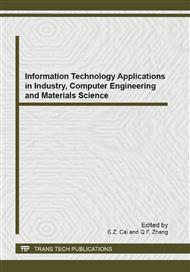p.4050
p.4059
p.4063
p.4068
p.4073
p.4078
p.4082
p.4090
p.4095
A Greedy-Based Computer Algorithm for Train Stop Schedule in High-Speed Railway Network
Abstract:
The study constructs a stop schedule model for high-speed railway. A greedy-based algorithm is proposed and the problem is divided into 3 stages to decrease its difficulty to an acceptable extent. Some greedy principles are applied and series of optimal models are constructed to solve the problem. The result of the sample shows that the models and algorithms in the study are effective.
Info:
Periodical:
Pages:
4073-4077
Citation:
Online since:
September 2013
Authors:
Keywords:
Price:
Сopyright:
© 2013 Trans Tech Publications Ltd. All Rights Reserved
Share:
Citation:


